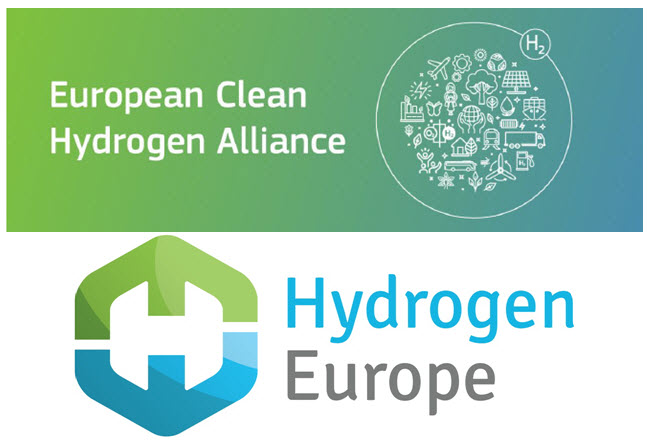Our goal is to contribute to the energy sector and have an impact on climate change by achieving net zero carbon emissions and developing innovative solutions that can bring the hydrogen age one step closer. Whether hydrogen is produced in offshore wind parks or in photovoltaic parks, modern solutions are needed to transport hydrogen, to the natural gas network or to the consumption end point.
At the forefront of technological innovation, our research and development in the field of hydrogen transportation, through existing or new energy networks, developing technology and new products will enable the clean transformation to a coal-free, clean energy economy. As a result, Corinth Pipeworks along with International energy infrastructure companies is leading the hydrogen era with the first high pressure gas pipeline network, certified to transport up to 100% hydrogen.
Standards
The certification of pipes for the transportation of pure gaseous hydrogen or H2/NG gas mixtures without additional design pressure limitations can be achieved, on the basis of pipe material’s fracture resistance properties qualification following design “Option B” requirements of code ASME B31.12. Following the above qualification scheme, Corinth Pipeworks is currently progressing with an extensive R&D program for fracture toughness testing of HFW, SAWL (longitudinal) and SAWH (helical) pipes in high pressure hydrogen.
All tests are accomplished in RINA, an acknowledged external European Company, highly experienced in hydrogen testing and fracture mechanics.
According to the up-to-date test results for HFW and SAWL pipes in grades up to L485M/X70M, all tested specimens in base metal, weld and HAZ (where applicable) positions demonstrated high resistance against hydrogen-assisted crack growth and the measured values for the KIH fracture toughness property were always higher than the minimum required value of 55 MPa·√m
Hydrogen testing lab
The new state-of-the-art hydrogen testing laboratory, is among the first of its kind for a pipe manufacturer worldwide, offering capabilities to address the need of the energy market for the development of a hydrogen network to achieve climate and energy objectives.
The laboratory has been designed to test pipeline material in hydrogen gas in pure or blended form under static load conditions and high pressure (up to 207bar), in full compliance with the requirements of the ASME B31.12 code. This new facility will support primarily qualification testing of new hydrogen pipeline projects, as well as R&D testing. New development plans for 2022 include the further upgrade of the hydrogen lab for fracture toughness testing under rising load conditions and evaluation of fatigue resistance.
First hydrogen-certified pipeline project for Snam’s high pressure gas network in Italy
Following the framework of ASME B31.12 Option B, Corinth Pipeworks and Snam cooperation provides a technically and economically feasible solution for the safe transportation of hydrogen at high pressures through large diameter/high strength steel pipelines. Thus, pipes produced today and installed in the current gas network can cover the energy mix of tomorrow. As required by this standard the pipes, in L415ME steel grade with an outside diameter of 26” (660mm) and thicknesses of 11,1mm & 15,9mm, have been tested in laboratory at maximum pressure and 100% hydrogen.
At the same time, we are one of the first companies, globally, to participate in the European Alliance for Pure Hydrogen (Hydrogen Alliance) as well as in Hydrogen Europe.
Hydrogen Europe
Corinth Pipeworks actively supports the technological efforts and research in developing products and solutions that will bring the hydrogen era one

step closer and help achieve a greener future. In this context, Corinth Pipeworks became a member of Hydrogen Europe Industry, the leading European organization that promotes hydrogen as a catalyst for a zero carbon- emissions society.
Hydrogen Alliance
Corinth Pipeworks signed the declaration “European Hydrogen Alliance”, which is an integral part of its Sustainable Development Strategy, while at the same time, being in line with the Paris Agreement on climate change, sustainable development goals and the EU Green Deal.
This Alliance aims to an ambitious development of hydrogen technologies by 2030, linking hydrogen production from renewable and low carbon source, to industry demands, transportation, other industries, as well as hydrogen transportation and distribution.